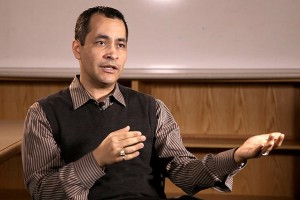Problem Solving Approach to Science
Harvard University Prof. Federico Capasso on convergence between different disciplines, “designer science”, an...
What are the three main fields of philosophy? What presuppositions does ethics have? How can we solve ethical questions with the help of economic theories? These and other questions are answered by Kendrick Professor of Philosophy at University of Arizona, David Schmidtz.
You can divide the category of ethics into two subfields: one this is that you can be doing the theory of what makes an outcome good, why would we prefer one outcome rather than another? So that’s ‘goodness’ – as philosophers, academic philosophers use the term. And then the second topic would be the question what makes an action right, what makes it the right thing to do.
Promoting the good is not the only way of responding to the good. We can also simply respect the good. And so when you see: you have your good, I have my good, Sergey, perhaps, has his good, or any number of other people we could be talking to. They each have their good, and part of the right attitude toward the good as it is pursued by separate persons is simply to respect it.
A healthy person imposes limits on himself or herself. And that is really important, because as soon as we get into the realm where we understand that to be rational is to operate under self-imposed limits, we are also in the realm of things that take on a moral dimension.

Harvard University Prof. Federico Capasso on convergence between different disciplines, “designer science”, an...

Biologist Ali Khademhosseini on tissue engineering, drug testing, and nanomedicines for cancer

Physicist Seth Lloyd on quantum mechanics, classical vs quantum computers and the “universal digital computati...